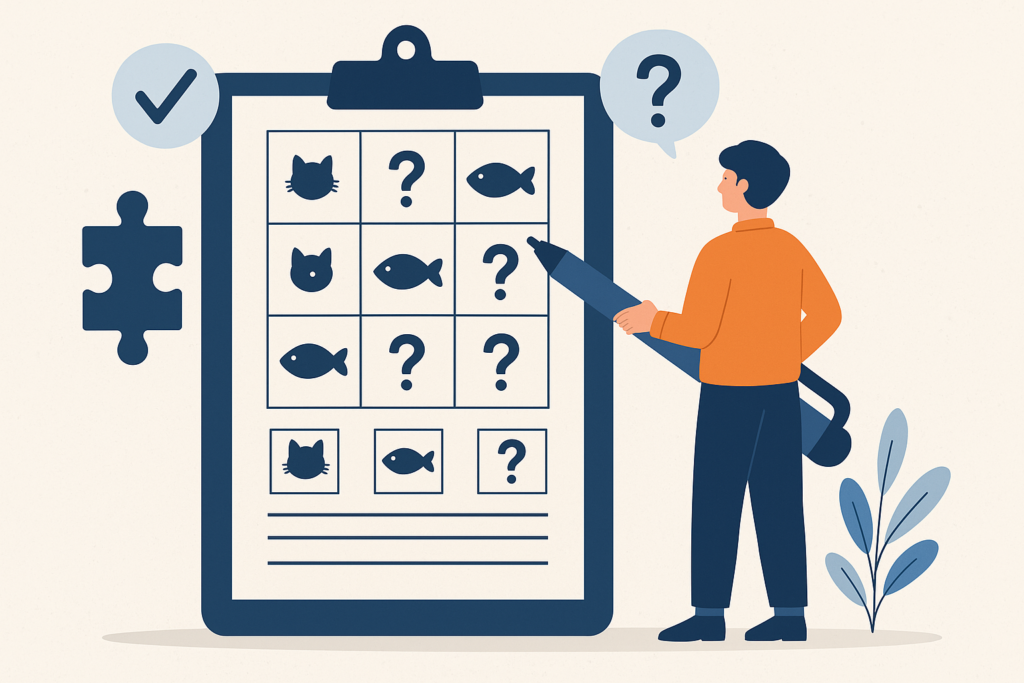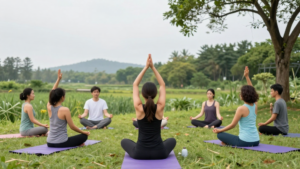7 Simple Exercises To Sharpen Your Critical Thinking

Critical thinking is defined as the intellectually disciplined process of actively and skillfully conceptualizing, applying, analyzing, synthesizing, and evaluating information. It serves as a guide to belief and action in both professional and personal settings. This mode of thinking enhances the quality of thought by imposing intellectual standards and engaging with the inherent structures of reasoning.
“A well-cultivated critical thinker raises vital questions and thinks open-mindedly to solve complex problems.”
Engaging in various exercises can significantly enhance these critical thinking skills. By practicing these methods, individuals can improve their reasoning abilities, leading to better decision-making and problem-solving in everyday life.
Mind Mapping
What is Mind Mapping?
Mind mapping is a powerful technique that visually develops and organizes ideas and information. It provides a structured way to capture concepts by breaking them down into their component parts. By using a single central topic, mind maps help users see how information fits together, offering an expansive and flexible structure to support thinking. This method enhances critical thinking skills by simplifying complex information and showing relationships between ideas.
Steps to Create a Mind Map
Creating an effective mind map involves a few simple steps:
Start with a central idea or topic in the middle of the page.
Branch out with related subtopics.
Use keywords or short phrases for each branch.
Incorporate images, colors, and symbols for visual engagement.
Connect related ideas with lines or arrows.
Review and refine the mind map for clarity.
https://2d538hj8y-8xet1lr4llzchhf6.hop.clickbank.net
Example Mind Map
| Central Topic | Subtopic 1 | Subtopic 2 |
|---|---|---|
| Healthy Living | Nutrition | Exercise |
| – Balanced Diet | – Cardio | |
| – Vitamins | – Strength Training |
By practicing mind mapping, you can enhance your ability to think critically and organize your thoughts effectively.
Analyzing Case Studies
Analyzing case studies is an effective exercise for enhancing critical thinking skills. These studies present real-world scenarios that challenge individuals to apply theoretical knowledge to practical problems. By engaging with case studies, you can develop enhanced analytical skills, practice decision-making, and foster collaboration through group discussions. This approach not only promotes diverse viewpoints but also encourages reflection on your thought processes.
“Case studies enrich learning experiences and equip individuals with essential critical thinking skills for effective problem-solving.”
To effectively analyze a case study, follow these steps:
Understand the case study by reading it thoroughly and highlighting key details.
Identify the central problem or challenge presented.
Gather relevant information, including data and resources related to the case.
Analyze the data using appropriate frameworks.
Develop potential solutions and evaluate their pros and cons.
Make recommendations based on your analysis.
Prepare for discussions by anticipating questions and defending your conclusions.
Reflect on the process to extract learning points for future application.
Applying these steps will sharpen your ability to think critically and improve your decision-making in various contexts. For more insights on the benefits of case studies, check out this resource.
Socratic Questioning
Understanding Socratic Questioning
Socratic questioning is a method of inquiry that encourages dialogue and critical thinking, rooted in the teachings of the philosopher Socrates. This approach aims to foster reflective thinking and uncover deeper truths through disciplined exchanges of questions and answers. Instead of merely imparting knowledge, it engages both the questioner and the respondent, promoting a collaborative exploration of ideas.
Key aspects of Socratic questioning include asking focused and open-ended questions that stimulate critical thinking, challenging assumptions, and facilitating personal growth. This method finds applications in various fields, including education and therapy, where it enhances critical thinking skills.
https://2d538hj8y-8xet1lr4llzchhf6.hop.clickbank.net
Example Questions
Here are some example questions you can use in practice:
What evidence supports your viewpoint?
Are there any contradictions in your reasoning?
How would you respond to someone who disagrees with you?
What assumptions are you making?
Can you think of an alternative perspective?
Incorporating Socratic questioning into your daily conversations can significantly sharpen your critical thinking skills.
Group Discussions
Benefits of Group Discussions
Engaging in group discussions offers numerous benefits for enhancing critical thinking skills. First, they promote depth of discussion, encouraging participants to explore topics in greater detail. This not only enriches understanding but also fosters a culture of active listening among students. By analyzing the contributions of others, students engage in metacognitive reflection, assessing their own thinking processes.
Moreover, group discussions create a collaborative learning environment, building communication skills and increasing overall student engagement. As participants share their ideas, they feel a sense of community, which motivates them to challenge each other’s viewpoints and develop their arguments further.
“Collaborative thinking transforms individual insights into collective wisdom.”
Tips for Effective Group Discussions
To maximize the benefits of group discussions, consider these practical tips:
Begin by allowing participants to introduce themselves and establish clear expectations. Use inclusive language and foster an environment where all voices are heard. Encourage the use of icebreakers and provide time for reflection before diving into discussions.
Finally, manage potential conflicts by redirecting discussions and ensuring a respectful atmosphere. These strategies will enhance participation and create a more engaging learning experience.
Reflective Journaling
Benefits of Reflective Journaling
Reflective journaling significantly enhances critical thinking skills by fostering self-awareness and encouraging deep reflection on experiences. This practice allows individuals to take charge of their own learning process, promoting critical analysis of their actions and decisions. Furthermore, it serves as a tool for constructive criticism, helping to identify areas needing improvement.
By regularly documenting their thoughts, students can recognize patterns and deficiencies in their understanding, which is essential for effective decision-making in real-world situations.
Guidelines for Maintaining a Reflective Journal
To create an effective reflective journal, consider the following guidelines:
Always keep the journal nearby: Capture thoughts as they arise.
Make regular entries: Consistency reinforces learning.
Participate, observe, summarize, and contemplate: Engage deeply before writing.
Review regularly: Reflect on past entries to track growth.
Free-form writing: Allow yourself to express freely without self-criticism.
Document experiences: Include detailed descriptions for better analysis.
By following these guidelines, reflective journaling can be a powerful tool for personal growth and enhanced critical thinking.
Critical Thinking Puzzles
Types of Puzzles That Enhance Critical Thinking
Puzzles can be an engaging way to sharpen your critical thinking skills. They challenge the mind and encourage creative problem-solving. Here are some types of puzzles that can enhance your critical thinking:
Logic puzzles: These require deductive reasoning and structured thinking.
Riddles: Solving riddles promotes lateral thinking and creativity.
Sudoku: This number puzzle enhances pattern recognition and strategic planning.
Crossword puzzles: They boost vocabulary and encourage associative thinking.
Brain teasers: These stimulate cognitive flexibility and imaginative solutions.
How Puzzles Stimulate Different Thinking Processes
Puzzles engage various cognitive processes, allowing you to approach problems from different angles. For example, logic puzzles require analyzing information and making deductions. Riddles, on the other hand, challenge your ability to think outside the box. By regularly practicing with different types of puzzles, you not only improve your critical thinking skills but also enhance your ability to adapt and apply these skills in real-world scenarios. This is essential for navigating complex challenges effectively, as highlighted in the context of reflective practices that encourage continuous learning and improvement.
https://57fa7mm6-a-08o87x4s92c-wd3.hop.clickbank.net
FAQ on Critical Thinking Exercises
Common Questions and Misconceptions
Q: What are critical thinking exercises? A: Critical thinking exercises are activities designed to enhance analytical skills, reasoning, and decision-making abilities. They can include puzzles, case studies, and reflective journaling, among others.
Q: Do I need special training to practice critical thinking? A: No special training is required. Anyone can engage in critical thinking exercises. The key is consistent practice and a willingness to reflect on experiences.
Q: Can reflective journaling really improve critical thinking? A: Absolutely! Reflective journaling encourages self-assessment and critical analysis of experiences. It fosters self-awareness and helps identify areas for improvement, which is crucial for developing effective critical thinking skills. This is supported by research indicating that reflective practice enhances learning outcomes in various fields, including nursing.
“The greatest enemy of knowledge is not ignorance, it is the illusion of knowledge.” – Daniel J. Boorstin
Understanding these concepts can demystify critical thinking exercises and promote their effective use in both personal and professional settings. Remember, the goal is to cultivate a mindset of inquiry and reflection.
https://blissfullway.com/5-ways-lifelong-learning-enhances-career-development/
Conclusion
Continuous practice in critical thinking is essential for personal and professional growth. It enhances our ability to analyze situations, make informed decisions, and solve problems effectively. By engaging in exercises such as reflective journaling, mind mapping, and group discussions, you cultivate a mindset open to exploration and improvement.
As you implement these exercises into your daily routine, remember that the journey of developing critical thinking skills is ongoing. Embrace the challenge and allow yourself to grow through each experience. The more you practice, the sharper your critical thinking will become.








